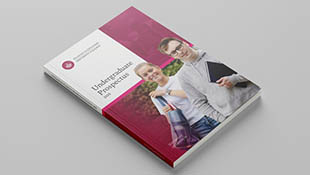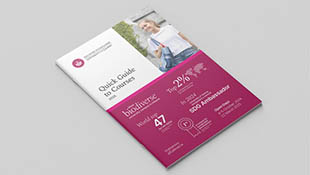-
Courses

Courses
Choosing a course is one of the most important decisions you'll ever make! View our courses and see what our students and lecturers have to say about the courses you are interested in at the links below.
-
University Life

University Life
Each year more than 4,000 choose University of Galway as their University of choice. Find out what life at University of Galway is all about here.
-
About University of Galway

About University of Galway
Since 1845, University of Galway has been sharing the highest quality teaching and research with Ireland and the world. Find out what makes our University so special – from our distinguished history to the latest news and campus developments.
-
Colleges & Schools

Colleges & Schools
University of Galway has earned international recognition as a research-led university with a commitment to top quality teaching across a range of key areas of expertise.
-
Research & Innovation

Research & Innovation
University of Galway’s vibrant research community take on some of the most pressing challenges of our times.
-
Business & Industry

Guiding Breakthrough Research at University of Galway
We explore and facilitate commercial opportunities for the research community at University of Galway, as well as facilitating industry partnership.
-
Alumni & Friends

Alumni & Friends
There are 128,000 University of Galway alumni worldwide. Stay connected to your alumni community! Join our social networks and update your details online.
-
Community Engagement

Community Engagement
At University of Galway, we believe that the best learning takes place when you apply what you learn in a real world context. That's why many of our courses include work placements or community projects.
Dr Anastasia Remoundou-Howley
Completed PhD: Dr Anastasia Remoundou-Howley (2011)
Palimpsests of Antigone: Contemporary Irish versions of Sophocles’ tragedy
My thesis explores the reception of Sophocles’ Antigone in contemporary Irish drama with works by Aidan Carl Mathews (Antigone1984), Tom Paulin (The Riot Act 1984), Brendan Kennelly (Antigone 1984), Conall Morrison (Antigone 2003), Seamus Heaney (The Burial at Thebes 2004), Stacey Gregg (Ismene 2007), and Owen McCafferty (Antigone 2008). The creative synergy between original text and adaptation, from page to stage, is symptomatic of an archipelago of literary and philosophical responses to Antigonean discourses which reroute politics and ethics into a current critique that extends far beyond the field of Classical studies. Through the lens of inherited interpretations and postmodern theorizations, with which all of these writers are familiar, I seek to demonstrate that the implications of Antigone’s mourning act, in the text and through performance, can be read as tropes for a post-humanist discussion redirected into the political sphere. In this way, these Irish adaptations, written in response to modern national and international tragedies, contest notions as varied and complex as ’agency’, ’representation’ versus ’disappearance’, ’mourning’, ’democracy’, ’law’, ’violence’, ’cultural identity’, ’gender’, ’mothering’, ’kinship’, ’war’, ’suffering’, ’memory’, ’trauma’, and the defense of human rights by revisiting Ireland’s violent historical past and redefining its role in the present beyond the narrow interpretative borders of an assumed anti-colonial terrain. I therefore submit that by reimaging itself as Other on Antigone’s legitimate space, the stage, and textually, these Irish playwrights, from the North and the South of the island, challenge Western logocentrism and democratic ideals from within by refiguring Antigone’s defiance as a protest against injustices inside the boundaries of their country and in the world at large. The contexts through which Antigone is palimpsestuously re-inscribed within Irish theatre exemplifies a metaphora (as ’transposition and as ’translation’) into new spaces and new possibilities of an agonistic pluralism that, being political, liberates Antigone from the confines sanctioned by Classical tradition. Antigone thus returns on the Irish stage since 1984 as the autonomous individual against the state, as the worn-out anti-heroine and mock-sacrificial martyr perpetually vanishing from the final act (Mathews), as a Republican rebel (Paulin), as a feminist icon (Kennelly), as an avenger/suicide bomber (Morrison), as a human rights defender (Heaney), as displaced by her sister Ismene (Gregg), and as a mothering pacifist in post-conflict Northern Ireland (McCafferty).
E-mail: tasharem@hotmail.com
Supervisor: Prof. Brian Arkins
Research area: cross-cultural encounters



















